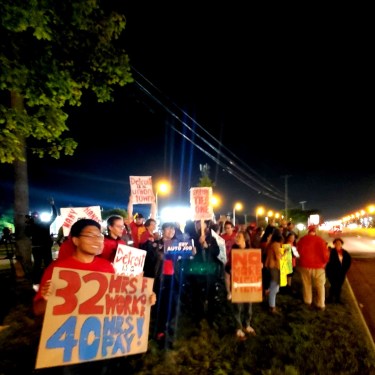The article discusses the ongoing labor negotiations between the United Auto Workers (UAW) union and major automakers such as Ford, GM, and Stellantis. The UAW is demanding a 36% pay increase for workers, which has been rejected by the companies. The negotiation process has been tense, with the UAW accusing the companies of wanting to "pay us poverty wages" while enriching their shareholders and executives.
The article highlights several key points:
- Pay increases: The UAW is seeking a 36% pay increase for workers, which has been rejected by the companies. Stellantis offered a 21% increase over four years, while Ford and GM proposed 20% pay bumps.
- Taxpayer funding: The article notes that taxpayers are financing a significant portion of the transition to electric vehicles (EVs), but labor is being left behind in this process.
- Tesla’s non-union workforce: Tesla has a non-unionized workforce, which gives it an advantage in terms of costs and competitiveness. However, the UAW’s momentum could be contagious, with some workers at other carmakers beginning to reach out to the union about organizing.
The article also mentions that Elon Musk, CEO of Tesla, is famously against unions and has taken steps to prevent his company’s workers from unionizing.
Some possible implications of this situation include:
- Increased labor costs: If the UAW is successful in its negotiations, it could lead to increased labor costs for automakers, which could impact their competitiveness.
- Impact on EV adoption: The transition to EVs relies heavily on taxpayer funding and investment. If workers are not compensated fairly for their role in this process, it could undermine public support for the transition.
- Rise of unionization efforts: The UAW’s momentum could inspire other workers at carmakers and other industries to seek union representation.
Overall, the article highlights the tension between labor and management in the auto industry and raises questions about the impact on EV adoption and taxpayer funding.




